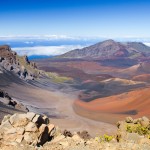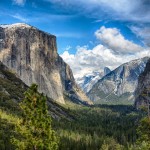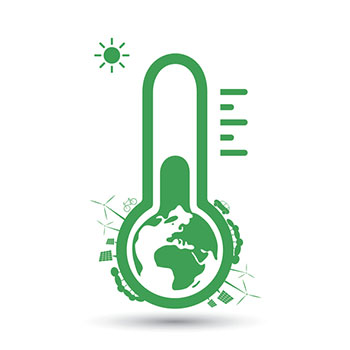What Is Environmental Science?
Environmental science (sometimes referred to as earth science) is a multidisciplinary field that combines the physical, biological, and earth sciences with a goal to understand how life is supported on earth. This field’s intent is to identify, contain, and prevent division or disruption to its systems typically caused by human activity.
The career field of environmental science is as varied as the environment you might work in; outdoors, in an office, or in a research laboratory, for the government or for a private company. Environmental scientists collect, study, and analyze information on elements such as soil and water, and find solutions for cleaning up area rivers and streams. In general, environmental scientists protect the environment and human health. They advise policymakers and work with big industry to clean up polluted areas and reduce waste.
Environmetal Scientist Job Duties
Job duties are also varied, and include data collection for research projects, surveys and investigations, compiling data from air, soil, water, food and other materials for scientific analysis, preparing reports that explain research findings, developing plans to control and prevent environmental problems, such as water or land pollution, and providing guidance to officials, businesses, and the general public on possible health risks from environmental hazards. And, there are specialties within the field of environmental science, such as climate change analysts, industrial ecologists, environmental health specialists, environmental chemists, restoration planners, and many more.
The US Bureau of Labor Statistics predicts 11 percent job growth from 2014 – 2024, which is much faster than average for all career fields. Within this same time period, 10,200 jobs were added, at an average annual salary of $67,460. The industries that employ the highest number of environmental scientists include scientific and technical consulting services, state and local government agencies, engineering services, and the federal government – in that order.
Education, Skills and Competencies
Most entry-level jobs in environmental science require a bachelor’s degree in environmental science, or a related field, such as physics, geosciences, biology, engineering, or chemistry. However, depending on the industry, a master’s degree may be needed for advancement to management, or to another area of environmental science altogether. Some graduates go on to earn a PhD in environmental science, but this is only necessary if you plan to teach at the postsecondary level, and for some specialized research positions. PhD students who choose to teach or complete research may find it beneficial to specialize or major in a field like chemistry or biology, rather than pursue a broader environmental science degree.
A bachelor’s degree will offer students a broad overview of the natural sciences. Coursework typically includes geology, biology, chemistry and physics, but may also include waste management and hydrology, and environmental policy and regulation as part of the curriculum. Individuals will also take classes in data analysis, computer modeling, or geographic information systems (GIS) are usually better prepared to enter the job market as many employers prefer at least a basic knowledge in these areas as well. To advance in this field, knowledge of statistics, surveying, electronics, proficiency with maintaining laboratory equipment, and expertise with software such as AutoCAD is also preferred.
Most students also find Internships an essential element to their overall college experience. Internships build experience, and also help students determine if they prefer one field over another. Through Internships, students gain hands-on experience in the field or in a lab, and internships assist students in making valuable connections in the field of environmental science. Like internships, volunteering can also provide opportunities to learn new skills and gain additional responsibilities that potential employers find valuable in applicants.
There are a number of skills that environment scientists should have in order to be successful in this field. These may include the ability to work well in a team environment, as well as have interpersonal, observational, and investigative skills. Good communication skills and professional values and ethics are also important qualities. It’s important to have physical stamina, and be willing to work in unfavorable conditions, in uncertain weather, and be willing to travel as part of the job. Self-discipline, problem-solving skills, and an inquisitive nature are all skills that will help in this profession, as is an understanding of patterns, relationships and interactions of various elements in the environment.
In general, scientists holding a bachelor’s degree are prepared to work in entry-level positions for the government (local, state and federal), as consultants, and for land trusts. A bachelor’s degree also prepares students to further their education and enter graduate programs. A master’s degree offers graduates managerial opportunities in government, industry, consulting, non-government organizations, and in research. Those earning a doctoral degree can gain positions in independent research at universities, post-secondary teaching positions, work in government agencies, like NASA, the USDA (Department of Agriculture), or USEPA (Environmental Protection Agency), NOAA (National Oceanographic and Atmospheric Administration) and for government thinktanks.
Available Certifications
Through the Institute of Hazardous Materials Management (IHMM), environmental scientists may choose to become Certified Hazardous Materials Managers, which shows scientists are current will all new developments in the field. This certification must be renewed every five years.
Career Options and Job Titles
Because the field of environmental science is so varied and offers so many work environments, scientists can choose from many exciting and interesting areas of employment. Most work full-time but may work longer hours when in the field. Just a few of the many areas, include:
- Surface Water Management
- Soil and Water Conservation
- Wetland Protection
- Aquatic Ecology & Toxicology
- Education
- Ecology
- Environmental Compliance
- Natural Resource Management
- Wastewater Treatment & Disposal
- Recycling
- Research
- Reclamation of Contaminated Lands
- Public & Environmental Health
- Quality Control & Risk Assessment
- Landfill Operation & Monitoring
- Hydrology or Hydrogeology
- GIS Analyses
- ... and so many more
- Enviromental Biologist
- Chemist
- Chemical Oceanographers
- Emergency Disaster Response Technician
- Entomologist
- Biochemist
- Astronomer
- Atmospheric Scientist
- Acoustical Engineer
- Analytical Chemist
- Environmental Writer
- Forensic Scientist
- Geographer
- Geomagnetist
- Fire Protection Engineer
- Mining Surveyor
- Zoologist
- Seismologist
Important Resources in Environmental Science
| Association/Organization | Contact Information |
|---|---|
| 4220 King Street Alexandria, VA 22302-1502 (703) 379-2480 ext. 224 | |
| P.O. Box 460 Collingswood, NJ 08108 (856) 283-7816 | |
| 1101 17th Street, NW Ste. #250 Washington, DC 20036 (202) 628-4311 | |
| 1101 17th Street NW, Suite 250 Washington, DC 20036 (202) 530-5810 | |
| 111 T.W. Alexander Drive Research Triangle Park, N.C. 27709 (919) 541-3345 |











